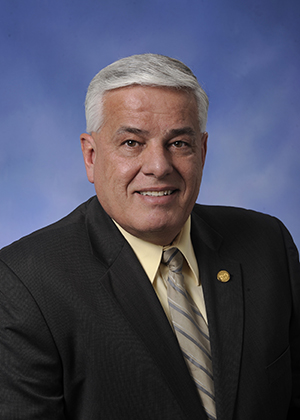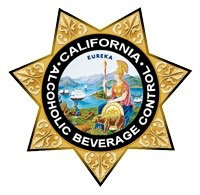Blog
SABMiller and AB Inbev Merger Casts Global Shadow
 Call it Newbelco, call it the Beerhemoth, call it the biggest beer company the world has ever known—whatever you call it, the new megabrewer that formed on October 11, 2016, from the merger of AB Inbev and SABMiller will be a dominating source of global alcohol harm. AB Inbev and SABMiller were already the two largest beer producers in the world; together, they will represent annual sales of $55 billion or more. The post-merger transnational company now called Newbelco will be responsible for one in three beers sold worldwide.
Call it Newbelco, call it the Beerhemoth, call it the biggest beer company the world has ever known—whatever you call it, the new megabrewer that formed on October 11, 2016, from the merger of AB Inbev and SABMiller will be a dominating source of global alcohol harm. AB Inbev and SABMiller were already the two largest beer producers in the world; together, they will represent annual sales of $55 billion or more. The post-merger transnational company now called Newbelco will be responsible for one in three beers sold worldwide.
As befits a global company, the threats from the merger to public health and governance are global in scale:
- The combined assets will greatly multiply Newbelco’s ability to engage in marketing, lobbying, and industry-slanted research.
- Newbelco intends to use economy of scale to build a strong presence in Africa, introducing low-cost alcohol to low-consumption areas. Without existing infrastructure to address prevention, regulation, and harm reduction, the effects could be catastrophic.
- Though antitrust actions forced Newbelco to divest some brands, those brands have been or will be quickly acquired by other international players in the beer market, such as Molson Coors and Asahi. Newbelco’s loss just empowers other massive alcohol makers to expand their reach and power.
- Both SABMiller and AB Inbev already have a reputation for wielding outsize influence at the national level. Less than a month ago, AB Inbev paid $6 million to settle charges stemming from bribery and whistleblower suppression in India. Meanwhile, critics of SABMiller are concerned they will be ungovernable in parts of South America, where many political figures have direct ties to the company.
Writing in the British Medical Journal, Dr. Jeff Collin and colleagues of the University of Edinburgh note the strategic similarities between Newbelco and the tobacco industries. The survival of transnational tobacco companies like Altria and British American Tobacco hinges on exploiting regulatory gaps in the developing world to generate millions of new customers. (The guidelines for these strategies should already be familiar to Newbelco, since Altria Group will itself own a 10% share of the megabrewer.) Although international development guidelines forbid collaboration with tobacco companies, no such stipulation exists for the alcohol industry. Dr. Collin urges quick action to close that loophole and proactively confront Newbelco and other alcohol companies looking to flood emerging markets.
Whether or not the international health community reigns Newbelco in, the colossus may already have it's next move planned. Industry experts speculate the company may soon attempt to acquire sugared-beverage manufacturer Coca-Cola. After all, in a world where obesity, alcohol, and tobacco are among the most frequent causes of death from non-communicable disease, why shouldn't Newbelco-Altria-Coca-Cola profit from all three?
Alcohol Justice CEO Presents on Alcohol Marketing in Breast Cancer Awareness
 The national outpouring of support for breast cancer research and education means the world has never been pinker—and savvy alcohol marketers knows how to capitalize on the color to sell their own brands. The pink-themed campaigns intended to raise funds for and awareness of one of the most common cancers in women seem unimpeachable. But when it comes to alcohol companies, how much are they raising and at what cost to public health?
The national outpouring of support for breast cancer research and education means the world has never been pinker—and savvy alcohol marketers knows how to capitalize on the color to sell their own brands. The pink-themed campaigns intended to raise funds for and awareness of one of the most common cancers in women seem unimpeachable. But when it comes to alcohol companies, how much are they raising and at what cost to public health?
Alcohol Justice Executive Director and CEO Bruce Lee Livingston, MPP, explored these issues in a session on “Pinkwashing and Corporate Marketing” at the 2016 Wisconsin Alcohol Policy Seminar, on October 20, 2016. Mr. Livingston addressed the discrepancy between ad budgets and actual donations, and the push to make alcohol seem socially responsible even as drinking is linked to breast cancer. DOWNLOAD Mr. Livingston's presentation.
Michigan Representative Fights for Charge for Harm Tax
 A Michigan lawmaker’s efforts to raise the beer excise tax face stiff resistance in the state legislature, according to the Detroit News. State Representative Tom Hooker (R-Byron Center) introduced a bill that would increase the tax nearly 250%, generating an estimated $60 million per year. As a textbook Charge for Harm initiative, the funds would go to the state Department of Health and Human Services to support treatment efforts, as well as programs meant to address alcohol-related harm, prevention, and enforcement.
A Michigan lawmaker’s efforts to raise the beer excise tax face stiff resistance in the state legislature, according to the Detroit News. State Representative Tom Hooker (R-Byron Center) introduced a bill that would increase the tax nearly 250%, generating an estimated $60 million per year. As a textbook Charge for Harm initiative, the funds would go to the state Department of Health and Human Services to support treatment efforts, as well as programs meant to address alcohol-related harm, prevention, and enforcement.
“If you’re going to use [alcohol], the problems that you cause are going to be paid for, and the same with the producers,” Rep. Hooker told the Detroit News. “They’re producing a poison that’s causing problems to our systems, to our society, and they should have to pay for it.” According to the Michigan Department of Community Health, excess alcohol consumption could cost the state $8.2 billion in lost productivity, health care, and other costs, including alcohol-related motor vehicle crashes. The Department explicitly recommends increasing alcohol excise taxes as a means to control alcohol consumption-related costs.
The proposed tax increase, the state's first since 1966, would leave Michigan with the eighth highest excise tax in the country. The Center for Alcohol Policy notes that the state has the fifth largest number of breweries nationwide, and the most east of the Rockies.
Hooker’s bill faces opposition from a rapidly growing local brewing industry, with lobbyists warning that competition from bordering states could put local liquor stores at a disadvantage. Talking to the Detroit News, the Michigan Chamber of Commerce also opposed the measure, identifying the craft brewing industry as a “significant economic driver for the state.”
The legislation is currently with the House Regulatory Reform committee but is expected to stall there, with Chairman Ray Franz (R-Onekama) saying, “I really don’t think there’s going to be time” to bring it up to the chamber.
Still, Hooker remained adamant about the importance of his bill. “I struggle with expansion of alcohol and recognize that it does damage our families and does damage our systems,” he told the Detroit News. “Not everyone who drinks is going to be an abuser, but those costs have to be borne somewhere.”
FURTHER READING: Alcohol Justice page on Charge for Harm.

Sharing Control: ABC Reaches Out to Community

On September 7, 2016, representatives from the California Alcoholic Beverage Control Department (ABC) solicited requests and suggestions for better alcohol control strategies from public health and community safety advocates—a first-of-its-kind collaboration.
"We don't know of another case in which ABC leaders have reached out to community representatives," said Thania Balcorta, co-chair of the California Alcohol Policy Alliance (CAPA). She was joined by participants representing organizations in the Central Valley, Los Angeles, Sacramento, San Diego, and San Francisco regions. Newly appointed ABC Chief Deputy Director Helena Williams and three other prominent members of the department met with the group.
The public health and safety representatives voiced concerns that industry interests were drowning out the needs of communities impacted by alcohol sales. Recent trends underline this issue, with ABC struggling to recruit and retain agents even as total alcohol licenses steadily rise. Participants also requested improvements in enforcement of existing regulations, better vendor training, and better transparency and public access to ABC data.
Lastly, the group requested that ABC continue its commitment to engaging public health and safety groups in the conversation surrounding alcohol policy in the state. "We believe this meeting is the first step in a new and positive working relationship," said attendee Eric Collins, chair of the San Diego Alcohol Policy Panel.
More Articles ...
Help us hold Big Alcohol accountable for the harm its products cause.
| GET ACTION ALERTS AND eNEWS |
STAY CONNECTED    |
CONTACT US 24 Belvedere St. San Rafael, CA 94901 415-456-5692 |
SUPPORT US Terms of Service & Privacy Policy |


